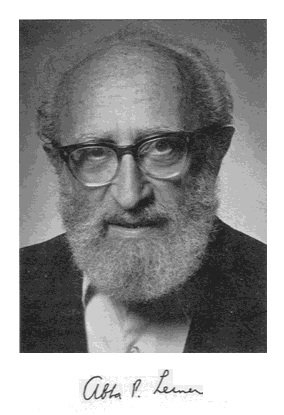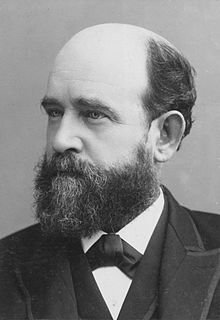Distributism, Socialism, & Georgism: Distinctions & Similarities
I am a fan of socialism, though I am not fond of the Marxist and Blanquist varieties. I am also a fan of distributism. There is a distinction between these two philosophies―socialism and distributism. Theoretically, they are polar opposites. Socialism wants the abolition of private property and its replacement with social ownership of land and industry. Distributism, on the other hand, wants to preserve private property. Distributism wants the widest possible distribution of ownership of land and industry. Although these are theoretically opposed ideas, they are practically identical. The line between socialism and distributism becomes very blurred when you critically examine the two proposals.

For instance, take the market socialism of Abba Lerner, where the means of production are publicly owned and the people receive a social dividend. Under models of socialism wherein society is treated as a corporation and each citizen as a shareholder, the end result is the widest possible distribution of wealth. In practice, such socialism is distributism! Distributism and socialism are both about redistributing wealth in a fashion that brings about the widest possible distribution of ownership. The Lerner model of socialism, which gives every citizen a share of ownership in the nation's land and industry is a form of distributism.

There is very little disagreement between socialism proper and distributism proper. In their essence, they are identical. Where the real disagreements arise is in the accidental (non-essential) parts of individual distributists' and socialists' worldviews. The disagreements between socialists and distributists are largely metaphysical and methodological/ethical. Socialists have a tendency to reject religious superstitions and are often inclined towards atheism and materialism. This, however, is not an essential aspect of socialism. There are also Christian socialists and other religious socialists. Distributists tend to be Roman Catholic, but it is entirely possible to be a distributist and an atheist. Furthermore, distributists emphasize the principle of subsidiarity, which holds that higher level organizations should serve merely to help lower level organizations and that no matter should be handled by a higher level organization or authority when it can efficiently be handled by a lower level of organization/authority. Now, this view is shared by many socialists, but not all, whereas virtually all distributists hold to this principle. Nevertheless, many libertarian socialists and libertarian-leaning socialists also hold to the principle of subsidiarity, although they may not use that precise terminology to describe their views.
The end result is that some people identifying as distributists and some people identifying as socialists may end up holding identical views but mistakenly believing that they are at opposite ends of the spectrum from the other.

I am also a fan of georgism, which is another view that is somewhat distinct from socialism but also basically a variety of socialism in some way. Georgism holds that land should be regarded as communally-owned. The georgist proposal is to allow the private owners of land to keep their "property," but just have the community charge them ground-rent for it in the form of a land value tax. The roots of this notion trace all the way back to Thomas Paine, who linked the ground-rent to a citizen's dividend. The community would charge the private possessors of land a rent and use the revenue to provide all people with a basic income. This idea was supported by a lot of socialist theorists, especially members of the Fabian Society and other social democrats. Georgism is very similar to the Lange-Lerner model of socialism; in an agrarian society, it would be indistinguishable from socialism. The georgist does not advocate social ownership of industry, but a georgist land value tax would affect a redistribution of wealth in such a way that it would eliminate the capitalist class as a distinct group, especially if the tax reform is done in conjunction with a citizen's dividend or basic income. Ultimately, the ownership of industry would cease to be concentrated into the hands of the few. This would bring about a distributist economy with widespread ownership.
I'm a distributist, a socialist, and a georgist. The libertarian social democracy that I advocate is a variation of the Lerner model of market socialism, which is a variety of georgism, and this model would bring about the widest possible distribution of property ownership.
I believe in a social security blanket for everyone, government has to exist, because you have to have policemen (no army), firemen, prisons, and everyone should have free education, free health care and social security money for his or her old age. You have to finance this through tax, but a limited tax and also the government should be very limited all it's extent would be providing the above services, people working for the government should be paid minimum wage regardless of the position held, and in fact government work should be viewed as a social service which everyone should have to do for let's say one or two years, instead of military service. I believe in private property and free markets I hate monopolies though, so I guess that's my whole political view.
follow me back